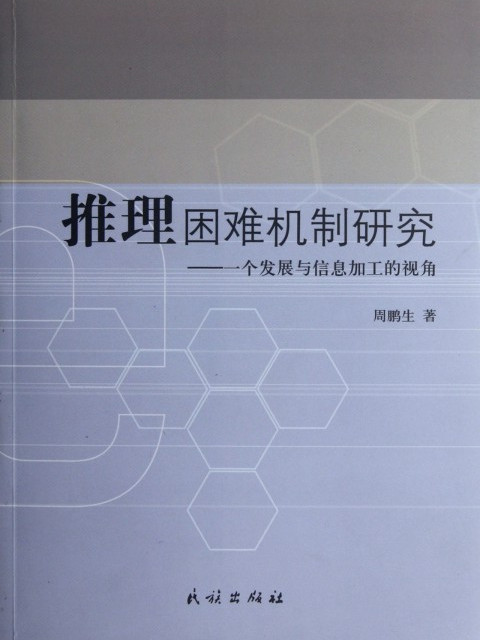中文摘要
第一部分基本理論分析主要包括第一章至第三章的內容,主要從信息利益概念的界定及理解、信息利益形成與配置的一般過程和信息利益的歷史演變三個方面展開對信息利益基本理論的分析。首先...
在世界信息經濟風起雲湧的現代社會,信息資源已成為各國經濟社會發展不可缺少的基本要素,一國信息資源的富集程度和信息能力直接影響著其在世界經濟中的地位。因此,我們有必要從利益的視角對信息問題進行系統全面的分析,以期能夠為我國全面持久的獲得更多的信息利益提供幫助。
文章圍繞信息利益問題逐層深入展開分析,主要包括基本理論、實踐考察和對策展望三部分內容。
第一部分基本理論分析主要包括第一章至第三章的內容,主要從信息利益概念的界定及理解、信息利益形成與配置的一般過程和信息利益的歷史演變三個方面展開對信息利益基本理論的分析。首先,文章在綜合考察了利益和信息相關概念的基礎上對信息利益的內涵、特點和分類進行了分析;其次,在解析了信息利益概念的基礎上對信息利益形成與配置總過程的各個環節以及各環節之間的關係進行了分析;第三,從歷史發展視角對信息利益在人類社會發展不同時期的表現做了總體的考察。上述理論分析為下文信息利益實踐的考察奠定了堅實的理論基礎。
第二部分實踐考察主要包括第四章至第七章的內容,主要從國內和國際兩個層面來考察信息利益的實踐活動。國內層面上,文章以中國的信息利益為研究對象,分別從巨觀、中觀和微觀三個層面對我國的信息利益實踐狀況進行了考察,一定程度上揭示了我國信息利益的總體狀況;國際層面上,文章選取國外實踐信息利益具有代表性的國家——美國、日本、韓國和印度——分別進行分析,根據他們各自信息利益的實現情況總結出值得我們學習的經驗和引以為戒的教訓。
第三部分對策展望主要包括第八章和第九章的內容,主要是結合我國信息利益實踐中存在的問題以及國外信息利益實踐的經驗,提出了更好地增進我國信息利益的主要對策,並進一步從更高的理論層面分析了信息化與可持續發展的關係,為我國信息利益的持久獲得指明了方向。
文章的新意之處主要表現在以下幾個方面:首先,文章通過信息、信息資源以及利益等概念的梳理,明確界定和分析了信息利益概念及其歷史演變,比較完整地建立了信息利益的理論框架,這些工作進一步擴展了利益理論研究的視野,豐富了利益理論的內容;其次,文章綜合運用多種計量經濟學方法分別對我國巨觀、中觀和微觀信息利益的狀況進行了實證分析,實證結果在輔助證明了相關信息利益理論的同時,也更為具體的說明了我國各層次信息利益的實現狀況,總體上論證較為系統全面;第三,文章在提出增進我國信息利益對策的基礎上進一步研究了信息化與可持續發展的關係,這為持久增進我國信息利益提供了理論指導。
關鍵字:信息資源 信息利益 信息化 可持續發展 信息文明
外文摘要
In the modern world economy filled with information, information resources have become indispensable elements for every country''s economic and social development. The degree of information enrichment and information ability may directly affect a country''s status in the world. Hence it''s necessary for us to analyze issues on information systematically and comprehensively so as to help our country gain more information interests roundly and perpetually.
This thesis focuses on analyzing ...
In the modern world economy filled with information, information resources have become indispensable elements for every country''s economic and social development. The degree of information enrichment and information ability may directly affect a country''s status in the world. Hence it''s necessary for us to analyze issues on information systematically and comprehensively so as to help our country gain more information interests roundly and perpetually.
This thesis focuses on analyzing issues on information interests step by step, mainly including some basic theories, empirical analysis, countermeasures and prospects.
Part one of basic theoretical analysis comprises of the first, second and third chapter. It illustrates the theories from three aspects containing definition and understanding of information interests, analysis of the general process and historical evolution of information interests as well. Firstly, on the basis of the concepts of information and interests, we define information interests and analyze its characteristics and classification. Secondly, each part of information interests'' formation and allocation and the links between them are studied in detailed. Thirdly, from the view of historic development, we elaborate the performance of information interests in every social development period. On the whole, this part forms a solid theoretical foundation for the following parts.
Part two of empirical analysis comprises of the fourth, fifth, sixth and seventh chapter. It analyzes the domestic and international practice activities on information interests. On one hand, China''s information interests practice activities are studied from macro, meso and micro dimension respectively which to some extent reveal the average level of our country''s information interests. On the other hand, through analyzing some foreign country''s information interests'' practice activities such as U.S.A., Japan, Korea and India, we obtain some experiences and lessons from it.
Part three of countermeasures and prospects comprises of the eighth and ninth chapter. We try to figure out some useful measures in order to improve our country''s conditions on information interests on the basis of some general theories and practical experiences analyzed before. Lastly, the relationship between promotion of information technology and its sustainable development is elaborated further which gives us a much clearer direction to make full use of information interests in the future.
The main contributions of this thesis, as well as its innovations, are manifested in the following aspects. Firstly, through analyzing the concepts of information, information resources and interests, we build a much more complete theoretical framework on information interests to some extent which will extend the research field and enrich its content on theory of interests. Secondly, through making use of a variety of econometric methods, we analyze China''s macro, meso and micro level of using information interests. The econometric results obtained have proved the correctness of theories on information interests and gave us a much clearer picture of the actual status of China''s information interests. This may makes the overall analysis more comprehensive and systematic. Thirdly, the thesis puts forward some countermeasures to promote our country''s information interests and elaborates the relationship between promotion of information technology and its sustainable development. This will certainly deepen our understanding and give us theoretical directions on information interests in the long run.
Key Words: Information Resources; Information Interests; Promotion of Information Technology; Information Civilization; Sustainable Development

